What The Good Schools Guide International says
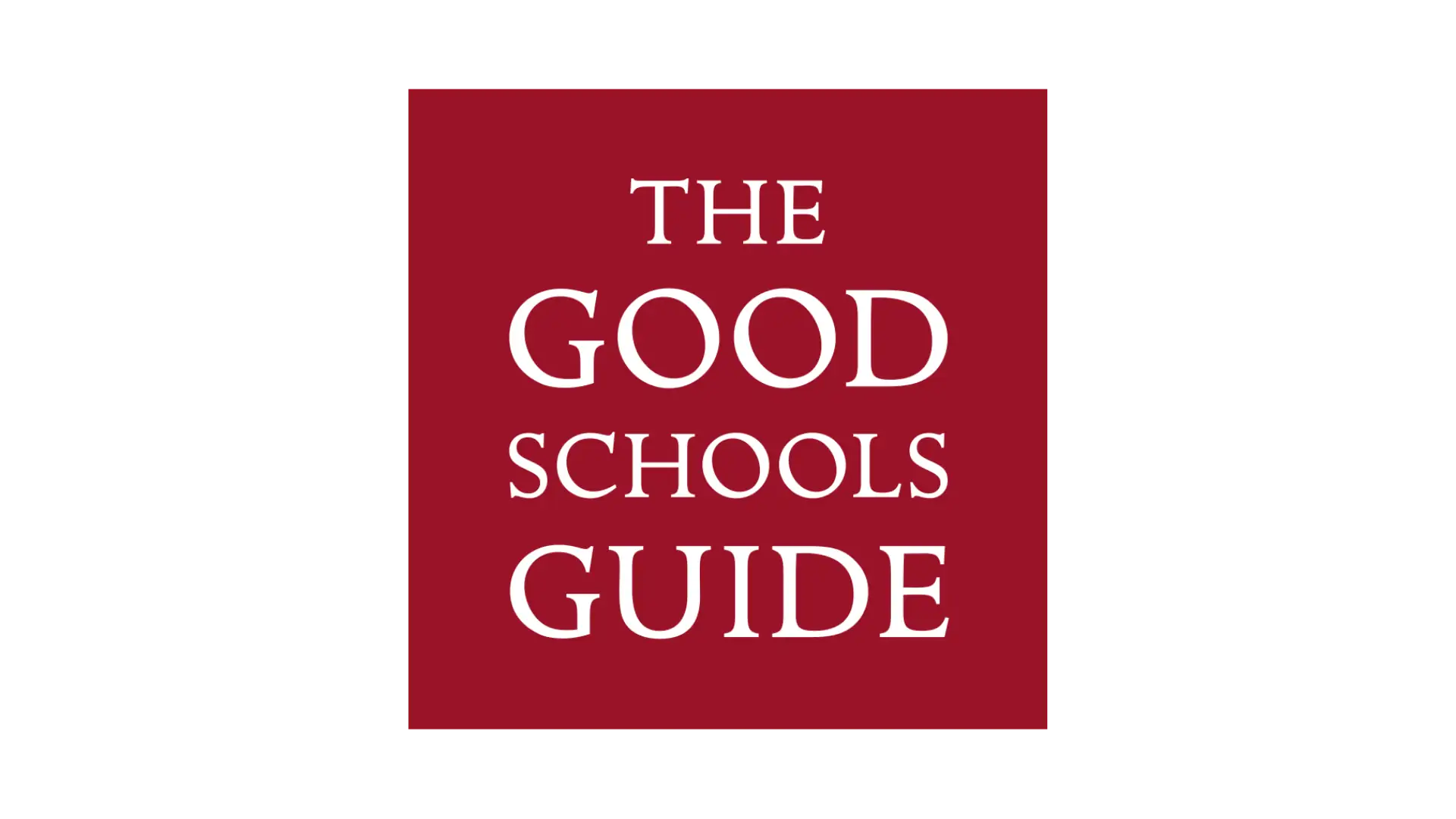
The Good Schools Guide is an impartial ‘education bible’ for parents seeking guidance on finding the right school for their child. Only schools handpicked by the Good Schools Guide’s editors can be featured in the publication, which means no school can pay for a GSG endorsement and recommendations are based on merit alone.
This is why the Good Schools Guide has rightfully gained a reputation as one of the most trustworthy sources of information about British and International schools.
It is also why Rugby School Japan is so proud to have earned a place in the Good Schools Guide, and to have received such a positive review which you can read unedited below:
Principal
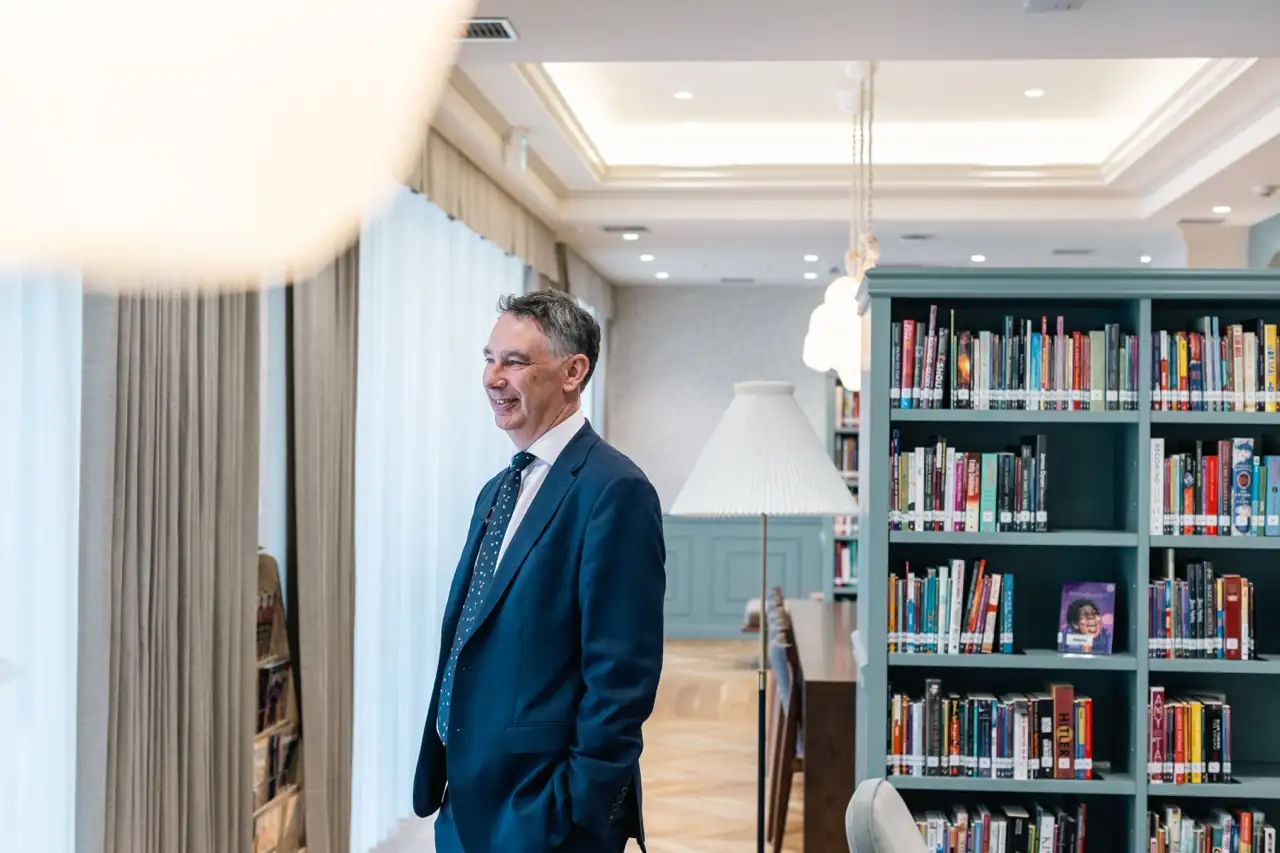
Since 2023, Tony Darby. Before moving to Japan, he was sub-warden of St Edward’s School in Oxford (city-based, co-educational, day and boarding school, not dissimilar to here). Spent 14 years of his teaching career at Rugby School in the UK where he held various leadership roles (including head of economics & business and senior housemaster) so he is well-steeped in the culture and ethos of Rugby School and all agree ‘rightly cast’ as founding principal of the school in Japan.
Discovered his vocation when he took a gap year to teach English in the Czech Republic after his graduation (politics and economics, University of Durham) before starting his job as an accountant at PwC. PwC was good training, he says, but he found that he missed ‘the sense of connection with the students and helping others improve’ so he was soon completing his teaching qualification. His move to Japan in 2022 was his way of challenging himself – a bigger role, brand new school, in a country that was new to him.
He has been the face of the school right from the beginning, when the buildings were under construction, and he features heavily in the school’s swish marketing material. Many families say Mr Darby was the main reason they entrusted their children to the school even though it was new, they were unfamiliar with the concept of boarding and/or their children had to switch from other curricula to GCSEs and A levels. Comes across to prospective parents as ‘professional’ and ‘reassuring’; ‘he absolutely sold it to us’ admitted a family. Parents ‘rate him highly’ and say, ‘You always feel he’ll listen, he gives you time’. We would echo this from our visit when he generously conducted our tour himself, being attentive to what our eyes were drawn to during the tour and was professional in an experienced and steady manner.
Parents say he is ably assisted by his two deputy heads – one academic, one pastoral – plus a director of co-curricular and partnerships; all with complementary skills and personalities so all bases are covered – all children seen, all concerns heard.
Sometimes a founding principal moves on after the initial task of setting up the school, but Mr Darby still finds the role ‘fulfilling’ and talks as one deep in the middle of the project, charting a sure path for the school’s continued development. In fact, he has sunk deeper roots here – his wife has now joined him at the school, and so too has his younger child (who opted to leave familiar England to complete sixth form here).
Entrance
Assessments and interview for applicants. The school wants children who are curious and ‘looking to push the boundaries in their learning’ and families who understand the value of a holistic education (not those expecting dismissal from school at three every afternoon).
Exit
First batch of students will sit A levels in 2025 but they already have big ambitions for Oxbridge, London School of Economics and Yale University as well as prestigious universities in Japan like Waseda Universtiy and Keio University.
Latest results
In 2024, the first cohort of IGCSE students were awarded 75 per cent of subjects at A-A*. Outstanding, especially considering it was a small cohort and half had completed the syllabus in just one academic year.
Teaching and learning
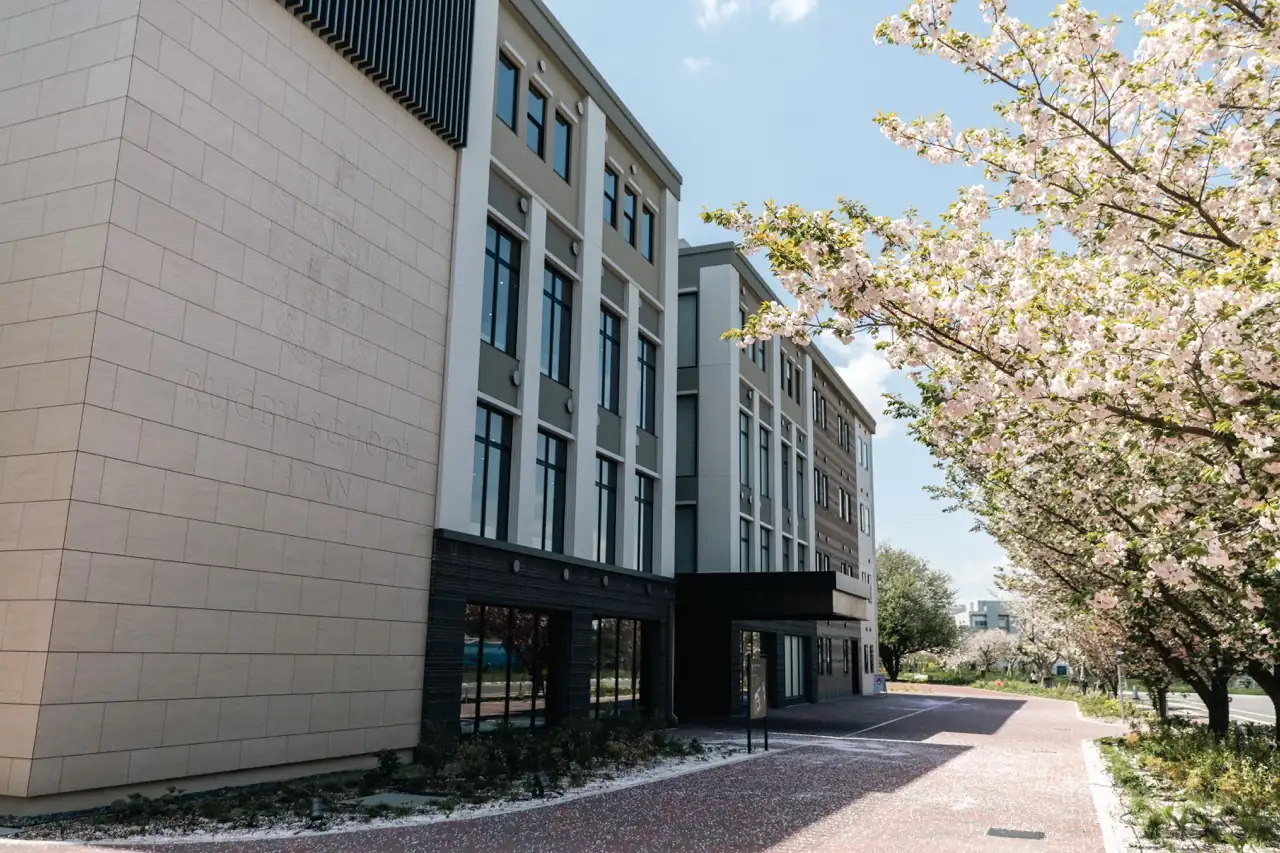
Situated in Kashiwanoha, accessible by a 30-minute ride on the mainline Tsukuba Express train from Tokyo. To quote the school’s developer, the buildings ‘have a modern edge yet they also echo the aesthetics of a British boarding school’. Classrooms are clean, light and bright with wide corridors and flexible breakout spaces. Science laboratories, debate chamber, music, design and other specialist classrooms are well-equipped. Buildings are connected by pathways amidst neatly landscaped surroundings, mature trees (300 existing trees preserved when the buildings were built) throughout the campus. In terms of facilities, the school wants for nothing.
The school admitted 134 pupils when it first opened its doors in 2023, increasing to 225 at the start of the following year. Numbers in fifth and sixth forms are sparser at the moment but already four forms filled in years 7 and 8.
Where pupils are gathered, there is high energy and intensity but with current enrolment at a third of capacity, the buildings still have that new, unlived-in feeling – trophy display cabinets waiting to be filled, surfaces not yet dented or scratched, while the neat, clean sixth form common room sets new standards. Only exception perhaps is the art room where the floor has paint splatters and many experimental works-in-progress taking up the space at the back of the classroom – definitely artists in the house!
Parents could not speak more highly of the quality of teachers. ‘Wonderful’, ‘amazing’, ‘very caring’ teachers whom parents can tell ‘know the children and know them well’. Parents say their children ‘speak favourably about their teachers’, with one adding, ‘We have never known them to be so complimentary about anything!’
Teacher feedback on work is detailed and reports to parents clearly evidence individual engagement with pupils. Staff deal with small issues quickly (within 10 minutes of a parent e-mailing in one case) and look after the whole child (not just the subject that they teach). ‘How can they find so many good teachers?’ wondered a parent quite genuinely.
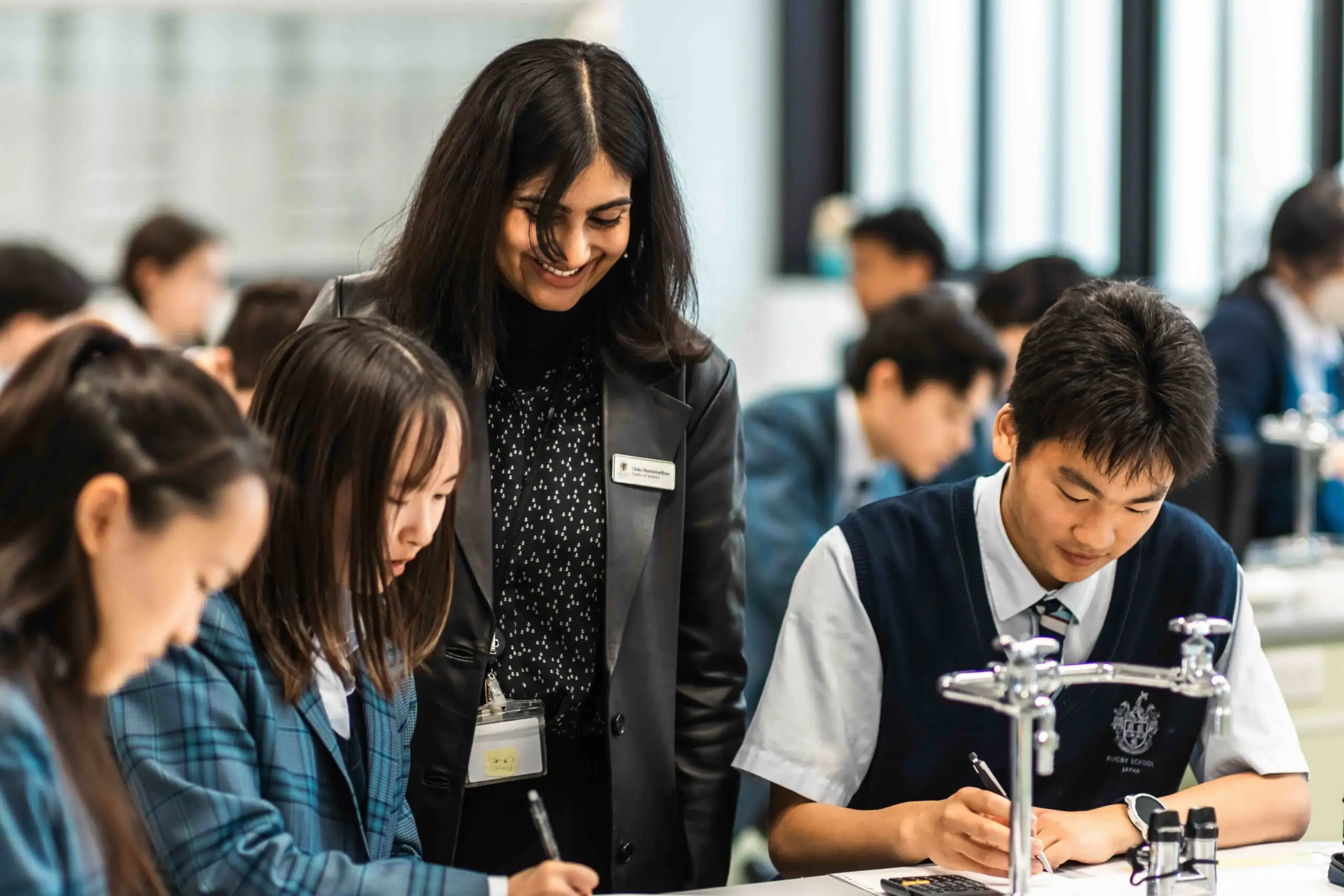
Vast majority of teaching staff come from the UK; one or two from Rugby School. Incredibly, there were over 2,000 applicants to fill roughly 40 staff places in the first couple of years of operation. Whether it is the draw of Japan and/or the Rugby School name, there is no doubt the school has the pick of the highest calibre teachers that the education sector has to offer. Distilling the applications to find ‘the great ones who are going to be fantastic’, identifying the ones who have ‘a love for the subject’ and ‘connection with the children’ as well as working through whether ‘a big move to Japan’ is personally right for the individual is a difficult and long process for the school, Mr Darby tells us. Our guess is any head would love to have these recruitment challenges.
Like any other school in this day and age, it has to navigate the difficult topic of technology and teens. Their decision is no access to mobile phones during the school day, fairly restricted access after the school day for boarders; rules more relaxed for sixth formers. Determined teen gamers have been known to find their way around restrictions (say by ‘working’ on their iPads or laptops) but if your child has trophy ambitions in the Olympic Esports Games, this school is perhaps not the best choice.
The whole of the campus is beautifully designed but the pièce de résistance must be the dining hall. ‘Like in Harry Potter…’ whisper many visitors when they first behold the impressive space. Inspired by the great dining halls of traditional colleges, it could have come off as slightly clichéd but somehow this re-interpretation with lots of natural light and all mod cons works well.
Most children say ‘the food is yummy’ and having tasted it ourselves, we can confirm. Two options of mains at each meal with access to the salad and soup bar as well as the Japanese staple – fluffy freshly cooked white rice. Some complaints that at times their preferred choice of main dish runs out or the breakfast offering is ‘boring’. Some gripes about portion sizes (particularly of favourite carb-heavy staples like pizza, pasta, fries, bread) being too dainty. School is keenly aware of the importance of busy teenagers needing to recharge nutritionally and shares feedback with caterers to make adjustments.
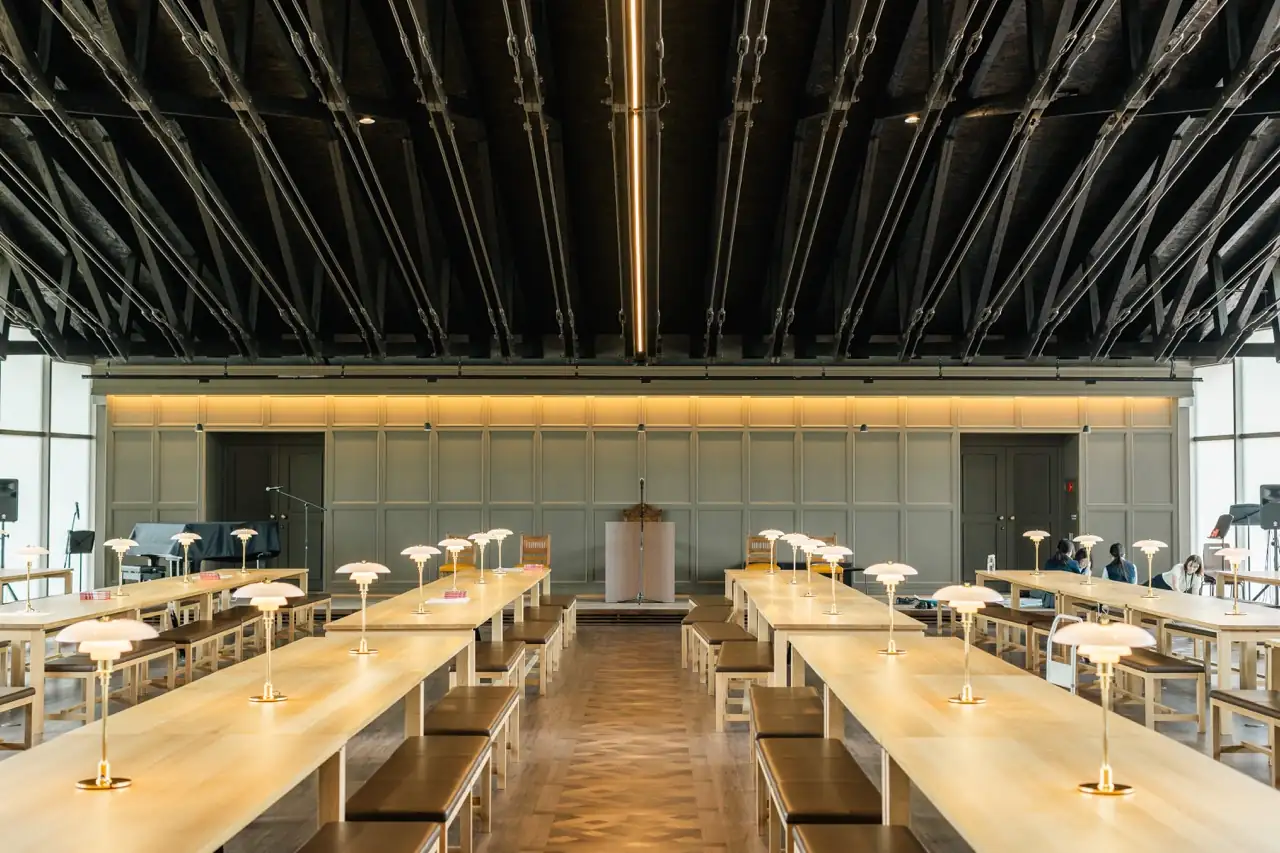
Learning support and SEN
The school has a personalised learning department with two branches – SEN and EAL. Pupils identified as needing special assistance receive personalised learning lessons, student support plans (communicated to all teachers) and additional support from external therapists as necessary.
Language support
EAL here is ‘not a little department on its own’, instead there is a ‘whole school approach’. Through staff training sessions and the in-house bi-weekly teaching and learning journal, all teachers are constantly reminded of practices that make their lessons more approachable and manageable for EAL pupils, which in turn benefit the classes as a whole.
Working with subject teachers, personalised learning teachers help pupils pre-learn the high-level vocabulary needed for each unit of work before the actual class is taught. In a history lesson on the Battle of Hastings for example, we saw a list containing Japanese translations of phrases like ‘papal banner’ and ‘feigned retreat’. Parents with children in the programme say the support has been tremendously helpful.
The arts and extracurricular
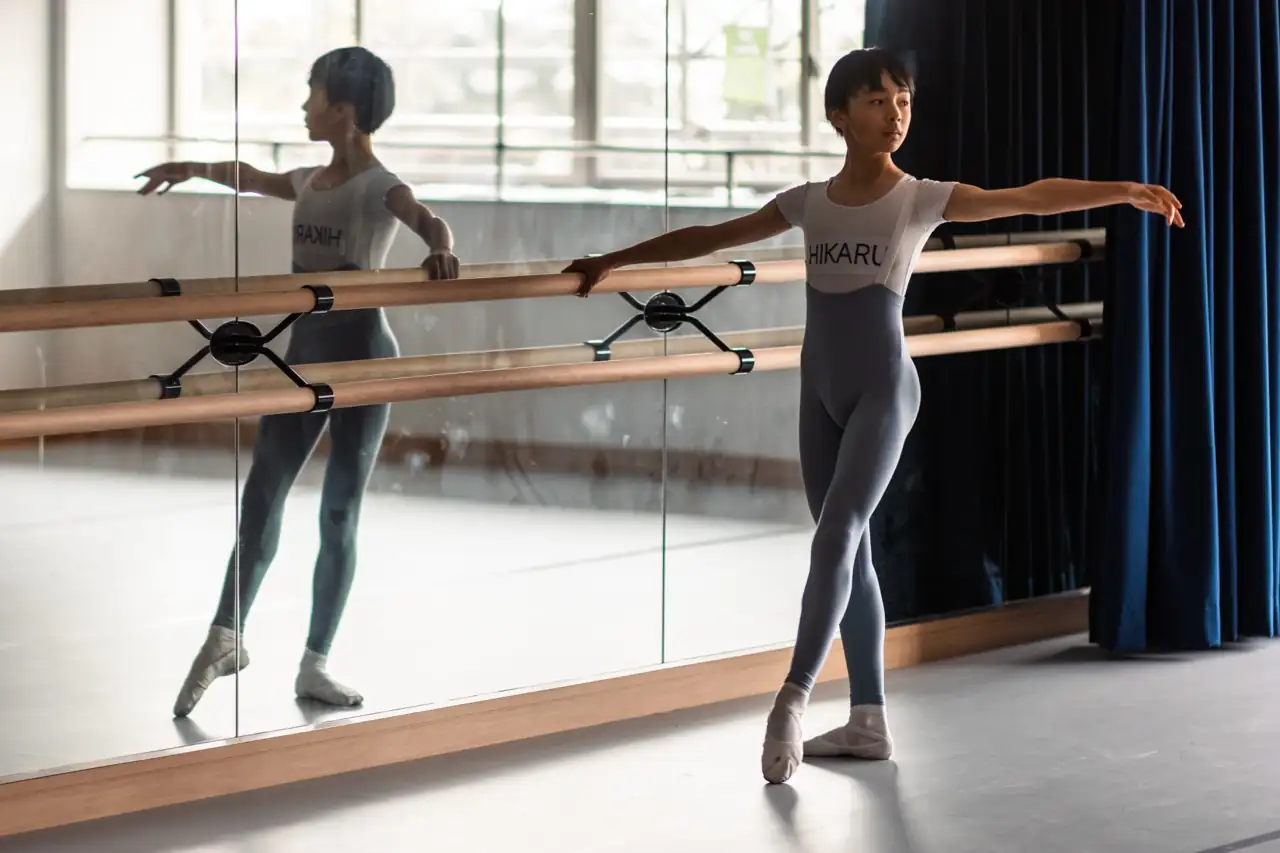
Clubs and societies are integral to the holistic education. The school proudly says, ‘Every single pupil does something outside of the classroom every single day.’
Parents reel off a long and varied list of clubs their children have enjoyed, from finance to cooking, sewing to rock bands, drama to photography. ‘Opportunities are expansive’, some parents even say there’s ‘too much choice’. Families coming from UK independent schools find the range more familiar, if possibly a tad less comprehensive than they are used to because school is still so new. Options are improving as numbers build and new staff come on board.
Instrumental music lessons available and many opportunities for musicians to perform in ensembles, jazz bands or rock bands. When we visited, pupils were gearing up for the open mic night at the end of the week and even those who weren’t performing were looking forward to attending to support their friends and classmates.
Sport
As befits the Rugby School tradition, lots of time and opportunities for a multitude of sports. Pitches might be a bit more modest than at the mothership school but the advantage of the new, bespoke campus is that everything is within easy access. Boarding houses border the advanced technology 4G synthetic sports pitch, which explains why the football boots we saw were not muddy in the slightest! Footballers talk of getting onto the pitch five minutes after rolling out of bed or being released from class. We watched the boys hard at play in an informal football game during break time but also spotted rows of football boots at the entrance to the girls’ houses.
Rugby is played every day. A newly announced strategic partnership with Super Rugby Pacific champions Blues Rugby will open up opportunities for students to benefit from coaching from the pros. A joint rugby academy programme is on the cards for the summer.
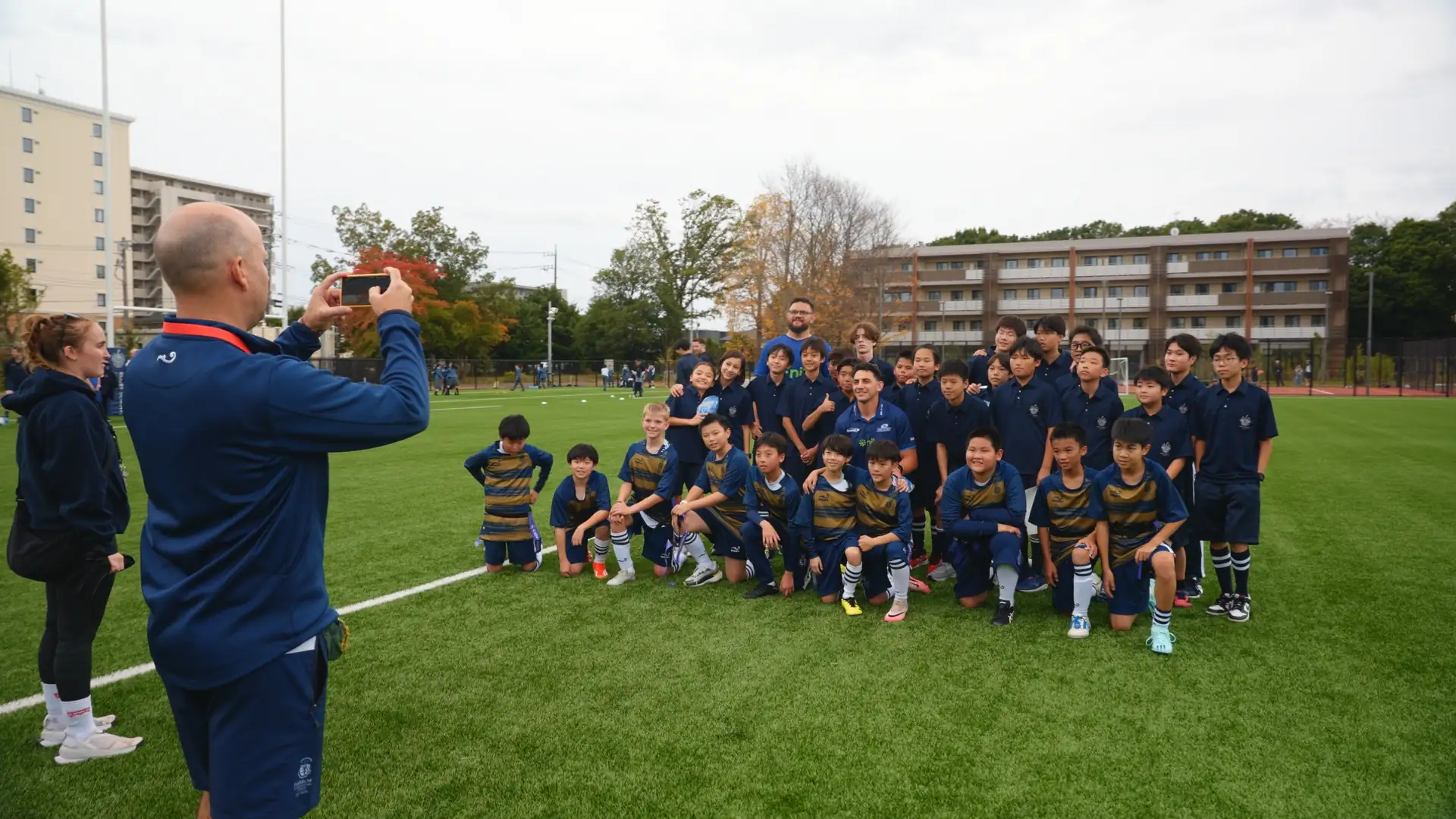
The dance studio boasts Harlequin performance flooring; the training gym, tennis courts and swimming pool are similarly fitted to professional standards. On hardware, you can assume the school is never knowingly underspec-ed.
Given the current number of pupils, there are some limitations on team sports and participation in competitions. Keen basketballers were disappointed last term, and some British parents lament the lack of cricket. The situation is fast improving with increased coaching and opportunities for competitive team fixtures each term. Parents of less sporty children appreciate the opportunities on offer, some picking up tennis or touch rugby for the first time and, under the guidance of dedicated coaches, are unexpectedly enjoying these sports.
Boarders
Four boarding houses, with two more due to open in September 2025. Approximately 60 students per house, each team has three residents plus a house assistant; other tutors come in to help with prep every day.
Roughly half the student population boards, mostly weekly but a good number of full boarders too. Boys slightly outnumber girls though the girls’ house we visited was lively during breaktime – a group displaying their prowess in table tennis, vying for selection to represent the house in the upcoming interhouse competition. A few were unselfconsciously practising Just Dance with the games console; speed chess and Jenga games also on the go. The boys’ house we visited was equally energetic – a group of year 7 and 8 boys, ostensibly all foodies, voiced their opinions about the dining hall menu, all the while hungrily scoffing onigiri rice balls. House teams were interacting easily with their tutees, remnants of the recent Halloween party still being put away.
Ethos and heritage
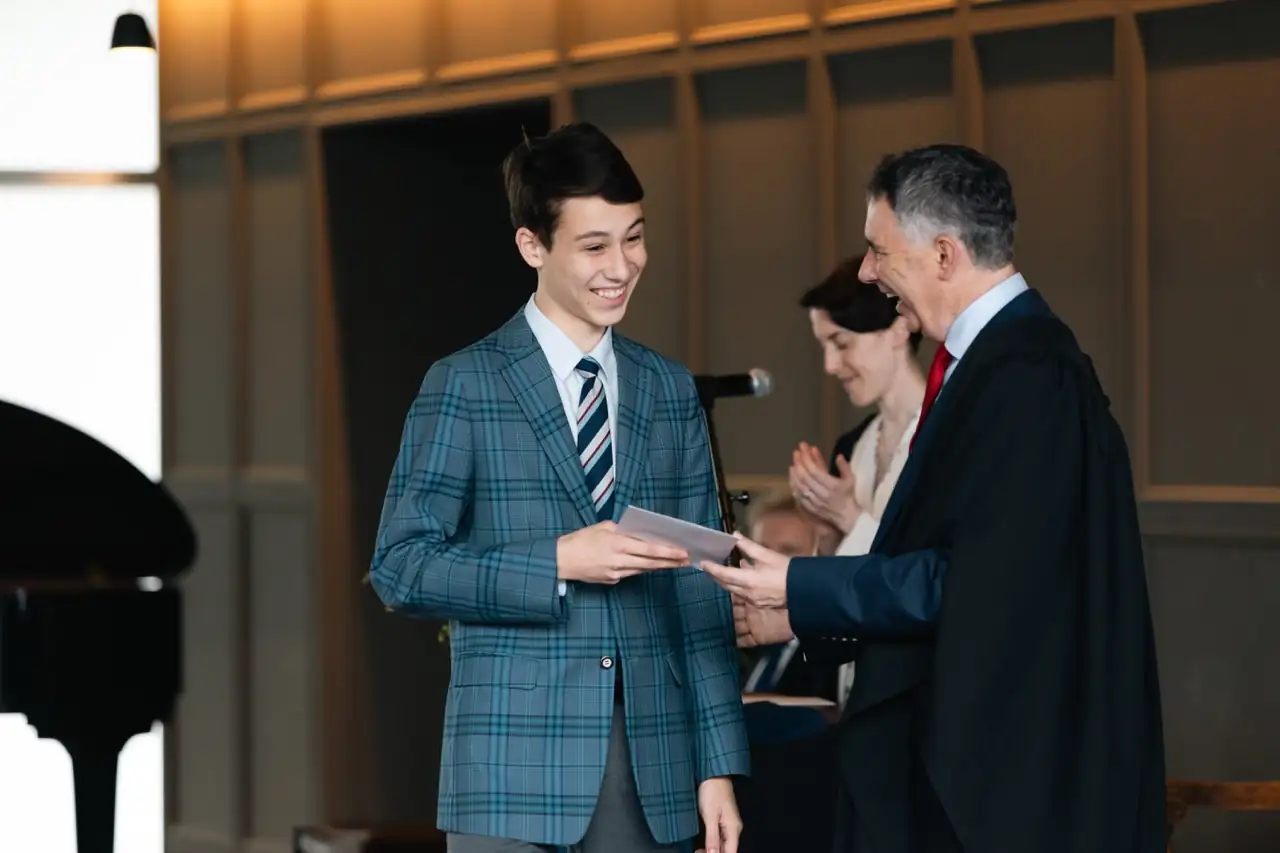
‘Whole person, whole point’ is prominently displayed, the ethos very much evident in the school’s curriculum and pastoral approach. Mr Darby reinforces values like kindness and respect and commitment to the community during weekly assemblies. These assemblies are probably the reason the community is familiar with the concept of ‘fine disregard’; in 1823 it was Rugby School student William Webb Ellis’ ‘fine disregard’ for the rules of football (by picking up the football) that founded the sport of rugby (and led to it being named after the school).
Representatives of Rugby School Group visit frequently. Students have begun to visit the sister school in the UK and there are plans (and facilities) for debates to be held among group schools via video link.
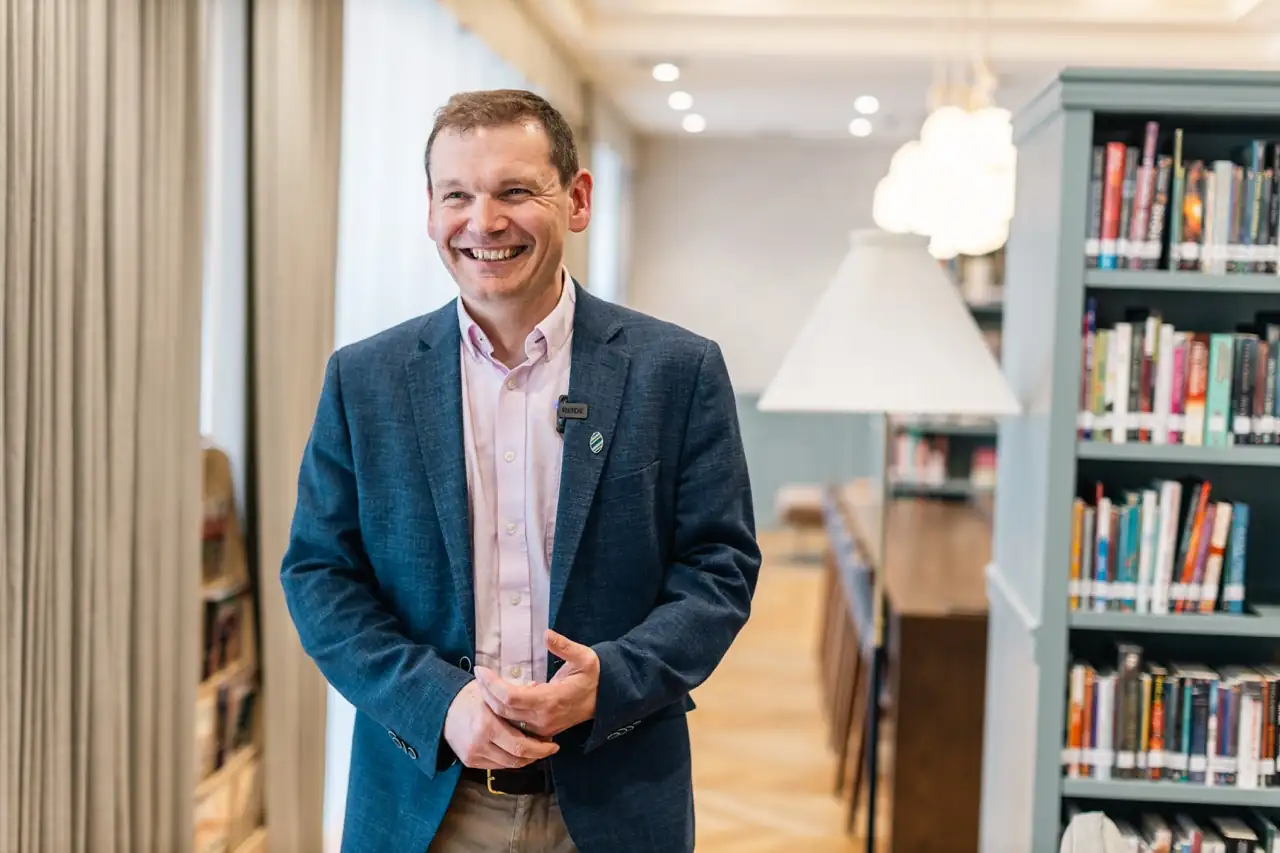
The school has been making strides in forming partnerships with community groups and corporations locally and more widely in Japan; Kashiwanoha Smart City is home to the University of Tokyo, Chiba University and the Institute of Advanced Industrial Science and Technology. Year 10 students attended the Asian Entrepreneurship Awards, hosted annually by the city, watching a shortlist of small businesses pitch for investment, and hopefully stimulating their own entrepreneurial spirit.
Collaborative links between the school and the University of Tokyo give sixth formers opportunities to work with research groups. Links with the local innovation lab allow students to interact with entrepreneurs and access resources to start their own ventures.
In celebration of the city’s 70th anniversary, the school opened its campus to local elementary school students and hosted an experience day that introduced their young visitors to some essential rugby skills from expert coaches. Student artwork is exhibited in local and community spaces and the school puts on mini music concerts for the community. Students are also involved in a reading programme at a local school.
Pastoral care, inclusivity and discipline
Parents rave about pastoral care. Even those used to the lower pupil-to-teacher ratios of UK independent schools say students get a lot of attention here. The school is proud to have been awarded Beacon Status for their ‘exemplary’ pastoral care system in their recent COBIS accreditation and compliance process.
Families like that the school offers a choice of day or boarding places. Day students have desk and cupboard spaces in the rooms in the residential houses and spend much of their break times there, often using the shower and changing facilities. As a result, day and boarding students are well integrated; there is ‘no divide’ say parents.
Classroom and community
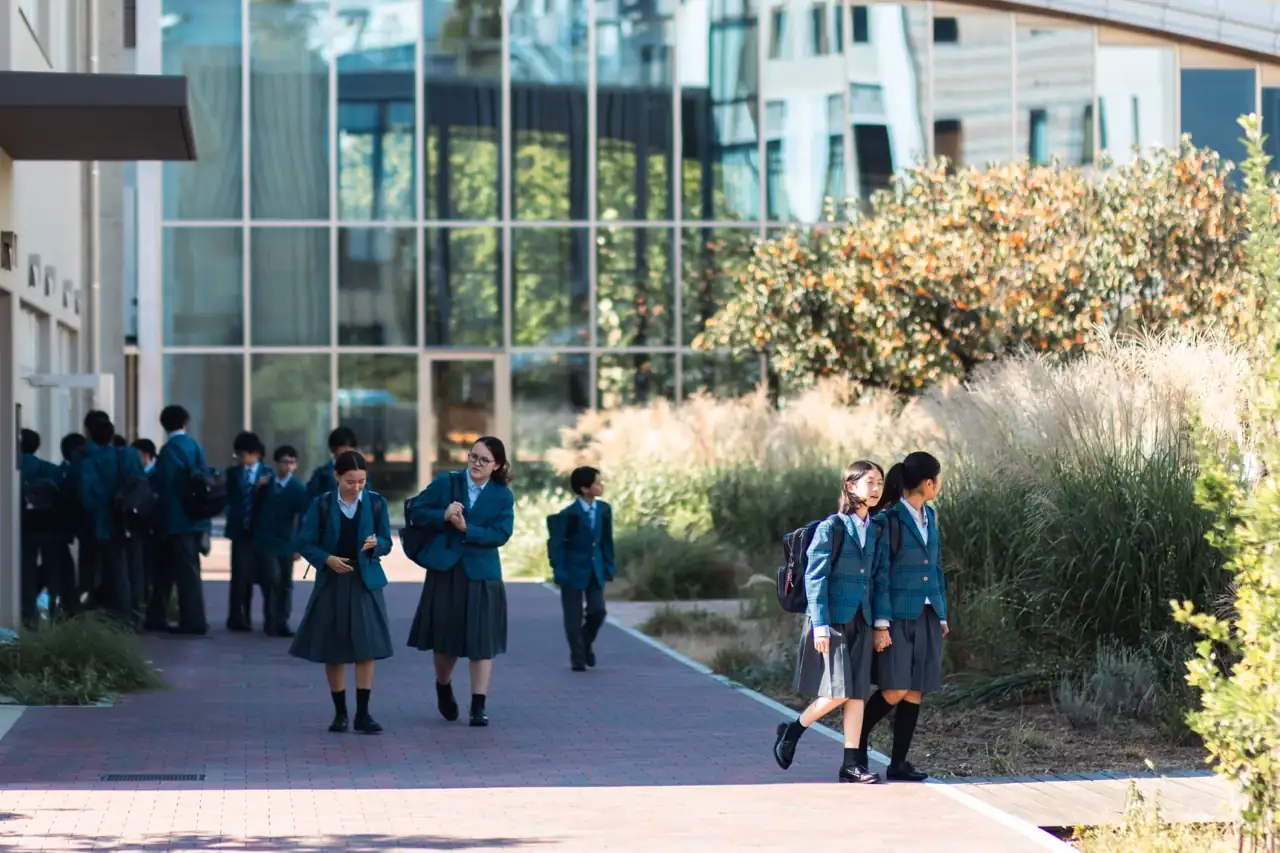
Some families say the student population is not as diverse in terms of nationalities as they had initially hoped, but everyone accepts this is inevitable given the location of the school and the fees.
Many day students live close to school but a small number travel further, some taking an hour each way door to door. Where there is a long commute on top of the daily schedule of co-curricular activities, term time can feel quite intense for day students (especially with Saturday morning school).
A good number of parents take up the open invitation to mingle with each other and staff at the school café every Saturday. Many opportunities for parents to go onto the campus, to support their children in football or basketball matches or for parent forums.
Parents, mostly financially privileged, are extremely discerning and have high expectations for the ‘world class quality education’ that they want for their children. They are not shy about raising issues (large or small) with the school and holding the leadership to account. As a light-hearted example, one parent said if the dining hall serves chicken too many days in a row, parents are quick to register their dissatisfaction and the matter will be swiftly rectified.
The community is tight and many families socialise together (Halloween and Christmas house parties, for example). Communication between parents and school has been easy without a PTA so far, but head intends to set this up imminently, cognizant of the importance of having a formal structure to manage parent engagement.
Money matters
Parents conscious that for roughly the same cost they could send their children to boarding schools in the UK but choose the school to keep their children close to home. Regarded as being on a par with UK boarding schools, parents do not begrudge the cost. ‘Extremely expensive’ said an honest parent bluntly but, as another one put it, ‘nobody says it is not value for money’.
Some scholarships awards for students who show exceptional abilities in academics, sports or performing and creative arts; helping to improve access.
The last word
Seriously consider this school if you are looking for an authentic British independent day and boarding school in Japan. Although still building up student numbers, early cohorts are benefitting greatly from close attention from outstanding academic and pastoral staff, plenty of cocurricular opportunities (especially sport) and access to enviable facilities.
